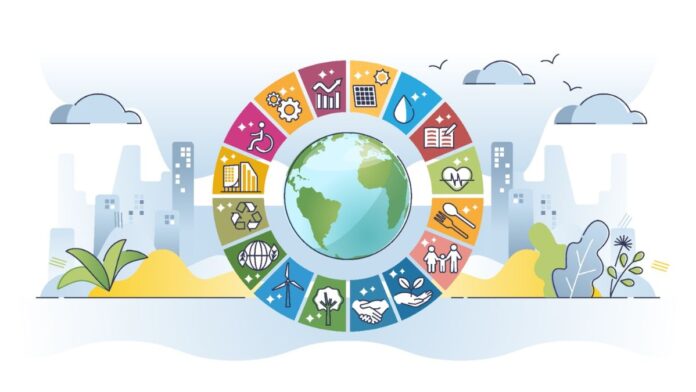New Delhi (India), October 26: The global circularity rate now stands at a mere 7.2%, down from the 8.6% recorded in 2020. This alarming trend has been propelled by the relentless extraction of virgin materials, pushing beyond the Earth’s natural production capacity. In a resounding wake-up call to the global community, a recent report “Flattening the Curve” – A Report Not Just About Reconditioning, But Unleashing Innovation At Scale For Circularity” a collaboration between the India Leadership Council (ILC), The Boston Consulting Group (BCG) and ET Edge Insights reveals that humanity has depleted an entire year’s worth of Earth’s natural production in just eight months.
In an era marked by supply-demand imbalances, urbanization trends, and escalating waste production, it is clear that a new approach to managing the material cycle is necessary. The circular economy emerges as one of the most potent frameworks to address these global challenges, with the potential to replace the existing linear system entirely. At its core, the circular economy revolves around three principles: eliminating waste and pollution, circulating products and materials at their highest value, and regenerating nature. These principles encompass activities across the entire value chain and yield numerous benefits, including risk mitigation, improved operational efficiency, increased innovation potential, growth opportunities, access to new markets/segments, and fortified customer relationships.
While the world largely adheres to the linear economic model, an increasing number of countries are embracing circularity from diverse perspectives. This acceleration is driven by the mounting risks associated with climate change and the allure of circularity’s benefits. India, however, is still in the early stages of its circularity journey. Currently, the country consumes double what it domestically produces, a trend expected to continue alongside GDP growth. According to a Ministry of Electronics and Information Technology report, India stands as the third-largest global consumer of raw materials, projected to consume nearly 15 billion tonnes of material by 2030.
Key Report Highlights:
Virgin Material Frenzy: The report rings the alarm on the continuous increase in the extraction of virgin materials, resulting in a significant drop in global circularity. Consumption has reached an alarming rate of over 100 billion tons of virgin materials each year, which is a staggering 1.8 times higher than the sustainable capacity of our planet.
Impending Crisis: If material consumption continues along its current trajectory, the report warns that we will require nearly three planets to meet our needs by 2040, underscoring a massive Circularity Gap.
The report reveals
The report highlights five priority sectors poised to lead the charge in circularity adoption: biomass, metal scrap (mostly ferrous), plastics, textiles, and construction and demolition waste, collectively responsible for 85-90% of global waste. These sectors offer untapped potential aligned with India’s self-reliance and 2070 Net Zero goals. Yet, sector-specific challenges must be swiftly addressed to unlock their full potential.
It underscores India’s urgent need to accelerate circular economy adoption, achieving complete decoupling of material use and GDP growth. This balance supports industrial growth, economic development, and innovative models without worsening resource constraints. India’s rich traditions of resource efficiency and reuse facilitate seamless integration of circularity into modern industries, positioning the nation as a global leader in sustainable transition.
Ambitious Targets and Roadmaps:
The report sets ambitious 2040 targets for each priority sector, aligned with international standards and national aspirations. It assesses seven “Circularity Health” metrics, including policy landscape, value chain, real-world implementation, market potential, growth opportunities, investment needs, and financing, identifying gaps and outlining solutions.
Guided by meticulous analysis and practical insights, the report constructs a comprehensive roadmap addressing global trends, challenges, and opportunities. It envisions sustainable markets and advocates policies shaping the path toward a circular economy. Industries can significantly reduce environmental impact and enhance resilience through reimagined manufacturing and sourcing practices, requiring time and significant investments. Leading companies in this transformation gain a competitive edge. These strategic plans not only contribute to the establishment of material and energy security but also lay the groundwork for India’s transformation into a developed and sustainable economy.
This groundbreaking report is the result of a powerful collaboration between The Boston Consulting Group (BCG), The India Leadership Council (ILC), and ET Edge Insights. And unravels the magnitude of climate damage inflicted by industries.
If you have any objection to this press release content, kindly contact pr.error.rectification[at]gmail.com to notify us. We will respond and rectify the situation in the next 24 hours.



